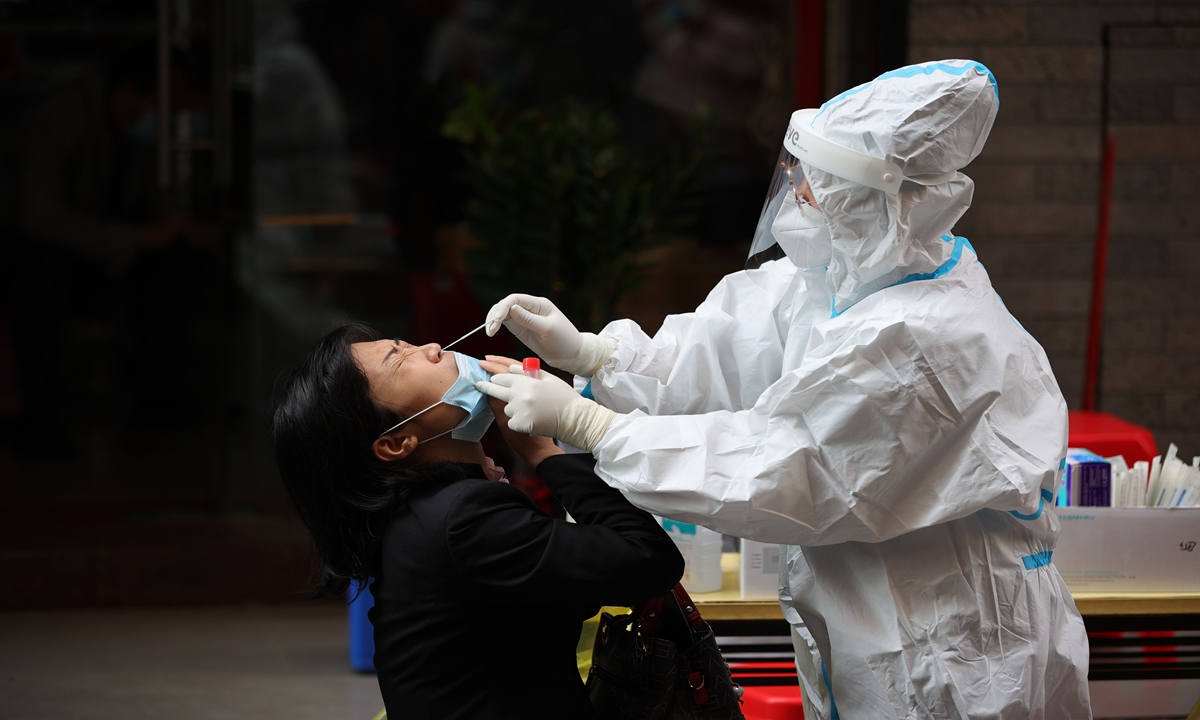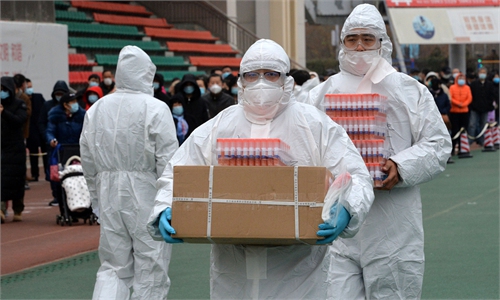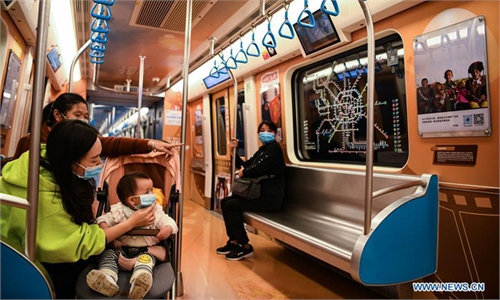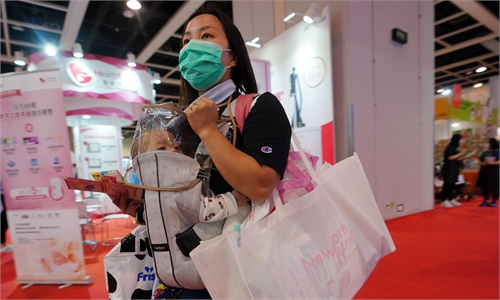
A resident of Shenzhen, South China's Guangdong Province, takes a nucleic acid test on Thursday. A Shenzhen resident tested positive for COVID-19 on Wednesday. The patient is a close contact of a Hong Kong-based truck driver, who was confirmed to be infected on Tuesday. Photo: VCG
A 20-year-old confirmed COVID-19 female patient from Chengdu, Southwest China's Sichuan Province, is believed to have suffered from cyber bullying after her personal information was leaked in the wake of the outbreak in the city.
Local police are investigating the case. Legal experts warned that anyone who leaks personal information of others may be committing a crime and could face imprisonment.
The woman, surnamed Zhao, a newly-confirmed patient on Tuesday, was targeted online and labeled by some netizens as the person to blame for the Chengdu outbreak because of her frequent visits to social venues, bars and clubs across the city.
The official report by the health authorities revealed that Zhao, who is unemployed, had been to various parts of the city, including a nail salon, park, restaurants and several clubs in the past 14 days.
It is normal practice to publicly release the general living address, travel history and surname of a confirmed patient in the past fortnight in China to track close contacts and contain the outbreak, without including other detailed personal information.
However, more of Zhao's personal information has been unearthed by netizens and forwarded on multiple social platforms. Her name, ID number, home address, photos and other personal information are suspected of being leaked.
Zhao is the granddaughter of an elderly couple who were confirmed as patients on Monday.
Some netizens had criticized the woman due to her previous history of frequent, questioning why she still went to bars to have fun even after her grandparents went to hospital, while some even passed judgment on her looks.
However, some defended Zhao, saying her activities were pretty normal if she did not realize she had been infected. "If reporting whereabouts generates cyberbullying, patients will hesitate to tell epidemiological investigators about their activities, which is a bigger threat to public health," a net user said on Weibo.
As the case is linked to a major public health event, anyone who leaked her personal information may face imprisonment, Wang Sixin, a media law professor at the Communication University of China, told the Global Times, citing regulations under the Criminal Law and Cyber Security Law.
"The online personal attack and hatred against the COVID-19 patient could cause damage to her life in reality. The leaking of people's personal information is against the law," Wang said. The public disclosure of basic information of confirmed patients by health authorities does not break any laws as it is linked to the health crisis and is in the public interest.
Chengdu is rolling out massive nucleic acid testing covering the entire district where the confirmed patients live. Other districts, such as Chenghua and Jinjiang, also released announcements saying they were tracking the patients' close contacts and require them to receive nucleic acid tests as soon as possible. No new cases were reported as of press time.




